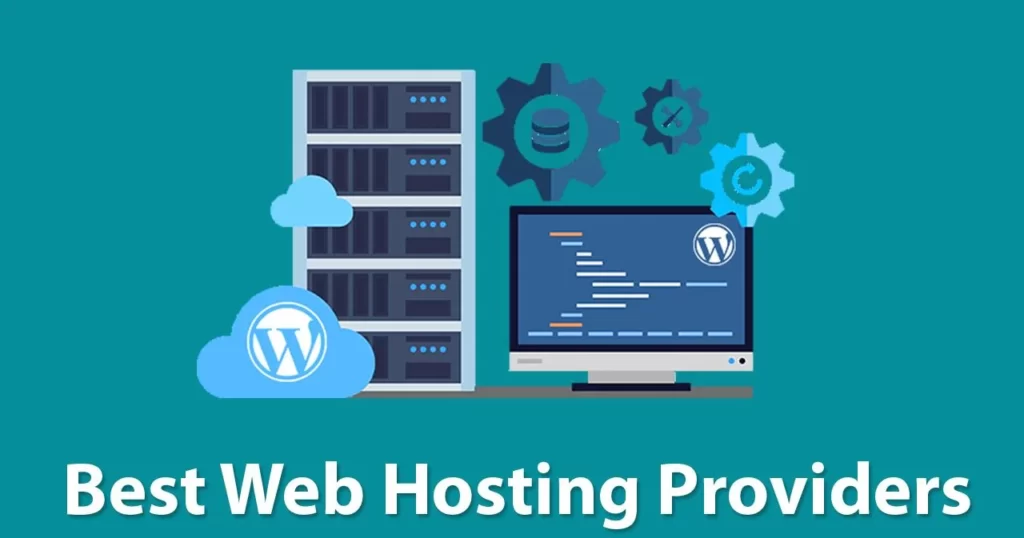
You can choose the best web hosting service provider easily by reading this blog. I can provide some factors to consider when choosing a hosting service provider in India:
Server location: Look for a hosting provider with servers located in India to ensure fast website loading times for Indian visitors.
Uptime: Check the provider’s uptime guarantee to ensure that your website will be available to visitors at all times.
Support: Look for a provider with 24/7 customer support, preferably with local phone support or live chat in India.
Pricing: Consider the provider’s pricing plans and ensure that they fit within your budget.
Security: Check if the provider offers features such as SSL certificates, daily backups, and malware scanning to ensure the security of your website and customer data.
what is web hosting?
Web hosting is a service that allows individuals or organizations to make their website accessible to the internet. A web hosting provider offers the technologies and services needed for a website to be viewed on the internet. When you create a website, all of the files and data that make up your site need to be stored on a server. A web hosting provider offers space on their server for you to store your website files, making them accessible to visitors who type your domain name into their web browser.
There are different types of web hosting services, including shared hosting, virtual private server (VPS) hosting, dedicated hosting, and cloud hosting. Each type of hosting offers different levels of performance, flexibility, and security, depending on your website’s needs.
In addition to providing server space, a web hosting provider may also offer features such as email hosting, website builders, backup and restore services, and security features such as SSL certificates and firewall protection.
Overall, web hosting is a crucial service for any individual or organization that wants to make their website accessible to the internet.

why we need web hosting for website?
Web hosting is essential for a website because it allows the website to be accessible to the internet. When you create a website, you need a place to store all of the files and data that make up your site, such as HTML, CSS, images, and videos. Web hosting provides that space on a server that is connected to the internet, making it possible for anyone with an internet connection to access your website.
Without web hosting, your website would not be accessible to the public, and no one would be able to see it. Hosting providers offer different types of hosting services that allow you to choose the level of performance, flexibility, and security that best suits your website’s needs.
In addition to providing server space, a web hosting provider may also offer additional features such as email hosting, website builders, backup and restore services, and security features such as SSL certificates and firewall protection.
Overall, web hosting is an essential service for any individual or organization that wants to create a website and make it accessible to the internet.
types of web hosting
There are several types of web hosting services available, each offering different levels of performance, flexibility, and security. Here are the most common types of web hosting:
Shared hosting: In shared hosting, multiple websites share the same server and its resources, including CPU, RAM, and disk space. This is an affordable option for small businesses or personal websites, but it may not be suitable for high-traffic websites as it can lead to slow loading times.
Virtual Private Server (VPS) hosting: VPS hosting offers more control and flexibility compared to shared hosting. In VPS hosting, multiple websites still share the same physical server, but each website has its own virtual space with dedicated resources. This allows for more control over server configuration and performance, and it’s a good option for growing websites that require more resources.
Dedicated hosting: With dedicated hosting, you have an entire physical server dedicated solely to your website. This offers maximum control, flexibility, and performance, but it’s also the most expensive option. Dedicated hosting is suitable for high-traffic websites or websites that require a high level of security and privacy.
Cloud hosting: Cloud hosting is a flexible and scalable option that utilizes multiple servers to host a website. This allows for automatic load balancing and redundancy, which ensures that the website is always available to visitors. Cloud hosting is suitable for websites that experience high traffic or have unpredictable traffic patterns.
Managed hosting: In managed hosting, the hosting provider takes care of the technical aspects of running a website, including server maintenance, security, and software updates. This allows website owners to focus on content creation and business growth. Managed hosting is typically more expensive but offers peace of mind for businesses that don’t have in-house technical expertise.
Overall, the choice of web hosting depends on the website’s requirements, budget, and technical expertise.
Do We require Hosting for Google Workspace?
Yes, in order to use Google Workspace, you will need to have a domain name and a web hosting service to host your domain’s email accounts, documents, and other Google Workspace applications.
Google Workspace provides you with a suite of cloud-based productivity tools, including Gmail, Google Drive, Google Docs, Sheets, Slides, and many others, but it does not include web hosting services.
To use Google Workspace with your own domain, you need to sign up for a subscription plan and verify your domain ownership. Once your domain is verified, you can set up Google Workspace for your domain and configure your domain’s DNS settings to point to Google’s servers, which will allow you to use Google’s applications with your own domain name.
You can purchase a domain name and web hosting services from a domain registrar or web hosting provider, or you can use a domain and hosting provider that offers integrated Google Workspace services.
